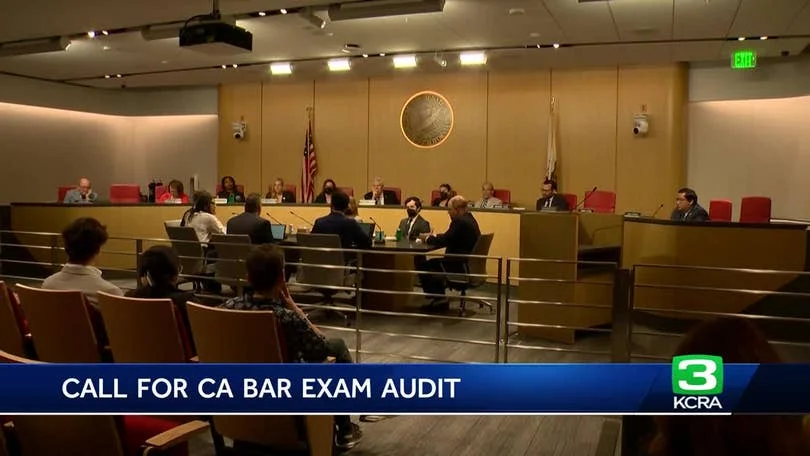
Is California’s Bar Exam a Gateway to Chaos? Uncovering the Hidden Costs
The California State Bar's ambitious overhaul of its bar exam was intended to save millions and modernize the process, but it has instead sparked a whirlwind of technical failures, financial woes, and public outrage. This debacle not only jeopardizes the futures of aspiring lawyers but also raises serious questions about accountability in professional licensing systems across the U.S.
In February, what was billed as a cost-saving hybrid exam descended into chaos. Thousands of test takers reported severe issues, including login delays, platform crashes, and poorly worded questions, some of which were drafted using artificial intelligence without proper legal review. Leah T. Wilson, the State Bar's executive director, testified before the Senate Judiciary Committee that the agency now faces an additional $5.6 million in costs for free retakes, in-person testing sites, and reverting to the traditional format.
Senator Thomas J. Umberg, chair of the committee, grilled officials on the mishandling: "How did we come to this place? And how do we make sure we never come back?" Test takers like Andrea Lynch shared harrowing experiences, calling it a "systemic failure" that eroded the exam's integrity and fairness. Lynch described constant disruptions that prevented her from completing sections, highlighting how the test failed to uphold the justice it aims to measure.
The State Bar has responded aggressively, filing a lawsuit against vendor Meazure Learning for fraud, breach of contract, and negligent misrepresentation. According to the complaint, Meazure promised a seamless platform but delivered one plagued by glitches, with over 95% of participants reporting problems. This included missing features like spell check and copy-paste functions, forcing test takers to scramble for alternatives. Critics, including UC Davis Law Dean Jessica Berg, argue that the rush to implement the exam—driven by a projected $3.8 million deficit and insolvency fears by 2026—was predictable and avoidable, causing emotional and financial harm to applicants.

Adding to the controversy, the February exam boasted a record-high pass rate of 55.9%, compared to 33.9% the previous year, thanks to score adjustments amid the turmoil. However, experts question the validity, with Umberg probing whether this reflects true performance or lenient grading. Stephen Zendejas, a first-generation law student who failed, testified about "absurdly worded questions" and technical breakdowns that left him disheartened: "We'll never know if the results would have been different without the issues." His story, shared alongside his sister Tiffany, a public defender, underscores the personal stakes in this statewide fiasco.

In comparison, past exams were more reliable, but this experiment exposed vulnerabilities in adopting remote testing without thorough testing. The State Bar's decision to sue Meazure and pursue an independent audit, as mandated by Senate Bill 47, signals a push for reform, yet the financial and reputational damage lingers. This case highlights the risks of prioritizing cost savings over quality in essential institutions.
Ultimately, this bar exam crisis serves as a cautionary tale about innovation gone awry, emphasizing the need for rigorous oversight in legal education. What lessons should be learned to prevent future failures? We invite readers to share their views in the comments and help shape the conversation on accountability in professional exams.